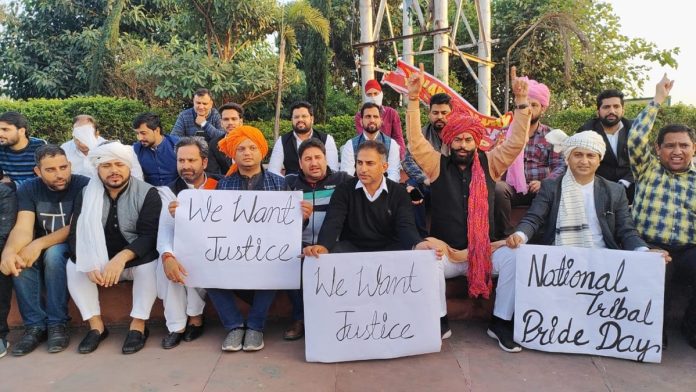Ronik Sharma
The Central Government is considering and giving the well-deserved Pahari ethnic group of J&K Schedule tribe status (ST Status) in response to the long-standing demand for such status. However, this is merely a procedural delay in giving the paharis schedule tribe status. Prior to each parliament session, the so-called opponents of the pahari ethnic group (the Pahari Tribe) plotted and have been plotting their strategy to oppose the Central Government’s move to grant ST status to the pahari ethnic group because everyone knew that the Pahari ethnic group was the first stakeholder to get the status as a Schedule tribe way back in the 1990s. They were also deprived of their true rights because of a number of political factors as well as shortcomings in both successive Governments, either in the erstwhile state of Jammu and Kashmir or in the Central Governments that followed.
It is commonly known that the Pahari ethnic group (Pahari Tribe) of J&K has a significant hold on vote-bank politics in all constituencies of the parliament, assemblies, panchayats, municipal corporations, councils, and committees. They are extensively dispersed throughout the state as well as other parts of the country, which includes the population of internally displaced persons, commonly known as the 1947 Pakistan-occupied Jammu and Kashmir displaced persons. For over to thirty – forty years, the Pahari ethnic group, also known as the Pahari Tribe, has been fighting for inclusion in the Schedule Tribe (ST) Reservation category. Now, the Central Government is preparing to grant this long-standing demand in order to end the discrimination that the Pahari people have been subjected to for a very long time. Following the repeal of articles 370 and 35 A, which were discriminatory, the Central Government is now considering the long-standing concerns of all societal segments that they have encountered as a result of these discriminatory articles.
Granting schedule tribe status to the Pahari Ethnic Group by reconciling the Pahari and Gujjar and rectifying the rift that was caused by the successive governments in power in the erstwhile State of Jammu and Kashmir as well as at centre. There will be 15 sittings during the 2023 winter session of Parliament, which starts on December 4 and ends on December 22. The pahari ethnic group (Pahari Tribe) in Jammu and Kashmir is expecting that the central government, led by the charismatic leadership of Prime Minister Narendra Modi, and the nation’s parliamentarians will take the pahari ethnic group’s long-standing demands seriously and provide them justice this time. The Central Government places great emphasis on addressing all social difficulties and challenges that have persisted for many decades in the former State of Jammu and Kashmir, as well as ensuring the well-being of every single person residing in the union territory of Jammu and Kashmir. The Pahari ethnic group has a legitimate demand for granting them schedule tribe status, as they have been struggling for a very long time and their appeal is justifiable. It is the sincere request of the ethnic Pahari people, who have consistently fought this discrimination.
It is commonly acknowledged that the Central Government bears the responsibility of eliminating such prejudice. It would demonstrate that India is an inclusive democracy. The Pahari ethnic group (Pahari Tribe), the Paddari tribe, and the Koli and Gadda Brahman were the three groups for which the Justice G.D. Sharma Committee Report had previously suggested the grant of Schedule Tribe status (ST). Even the National Commission for Scheduled Tribes (NCST) also recommended and gave green light to the proposal for inclusion of the ‘Pahari ethnic group’, Paddari tribe”, “Koli”, and “Gadda Brahman” communities in the ST list of J&K. The suggestion for inclusion in ST list had come from the commission set up for socially and educationally backward classes in the Union Territory, headed by Justice (Retd.) G.D. Sharma. This is a relevant place to bring it up.
In spite of shared ethnic qualities, socioeconomic disadvantage, ethnic affiliation, recurring migrations, and other factors, the Pahari ethnic group was disregarded and was not granted Schedule Tribe status in the 1990s, unlike other categories with similar traits. It is now widely known by the Central Government that the Pahari ethnic group has been demanding Schedule Tribe recognition for a very long time, and this time the Central Government is preparing to finally grant ST status to the Pahari ethnic group on their legitimate appeal. The Pahari ethnic group (Pahari tribe) has been voicing its sincere demand and battling against prejudice for a very long time.


